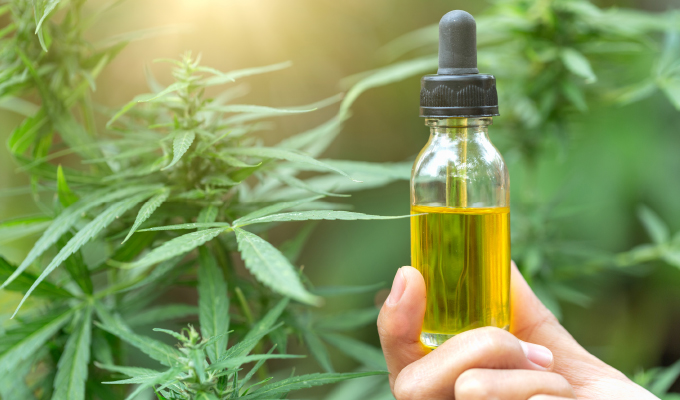By Rick Allen, BioLynceus, LLC
During my research for my new class “The Changing World of Pretreatment,” I ran across many new and inventive ways to use THC and CBD products. In Denver, Ganga Yoga encourages the two relaxation methods in one class. While teaching at the Tri-State Water conference in Las Vegas in August, I was fortunate enough to visit with an instructor teaching behind me. She confirmed that one of her adult children was recommending that she attend a Ganga Yoga class in the Bay Area.
THE ULTIMATE IN RELAXATION? A POTENTIAL PROBLEM FOR WATER PROCESSING?
With the growing market for THC and CBD products, perhaps Ganga Yoga should be on your pretreatment survey list to visit. Why should you complete a pretreatment survey? The reasons are many, but a few are how is the material prepared? Is it prepared onsite through edible products? If so, what are they doing with the waste? What products are being used to disinfect food preparation surfaces?
In Colorado, it is now evidently legal to add CBD or THC your burrito from the mobile food truck. Mobile food trucks are a big enough issue just from the fats, oils, and grease (FOG), but now we have other potential issues. In California, there do not appear to be any regulations around what they call “cottage industries.” These are people who prepare food in their house for distribution. Due to the opportunities to enhance food with THC or CBD, maybe this rule should be revisited.
In Washington state recently, I stopped at a roadside drive-through coffee shop. I asked to have my mocha Latte made with coconut milk. They did not have coconut milk, but they did have soy, almond, and CBD oil for an alternate milk.
I am not sure nor can I find any references as to how these products will ultimately affect your wastewater streams.
LEARNING FROM THE PAST
On the other side of the issue are manufacturers such as beer, seltzer water, and food manufacturers (for both humans and animals), just to name a few, that are creating edible products. Hopefully, these companies are already being checked because of your grease or pretreatment ordinances. By the way, grease (FOG) and pretreatment ordinances are no longer optional, they are mandatory.
In my opinion, every business new and old in your community should be on your list of annual pretreatment surveys. You just never know what is coming next. Maybe a beauty shop that offers THC brownies with every haircut? Definitely a way to relax the client while changing the color of their hair. There’s no telling which new trend could jumpstart a whole industry.
CBD AND THC PRODUCTS IN WASTEWATER
What are the issues with CBD and THC products in the wastewater industry? There are many. On the growing side of the business, are they hydroponic, green house, or agricultural (farming)? Many of the issues with growing are related to fertilizers, pesticides, and herbicides. Most states (except for California) do not have any regulations concerning the use of these chemicals, because the federal government considers it illegal to grow cannabis and hemp. Therefore, a lot of growing products do not have recommendations for use on their labels for either cannabis or hemp. These materials can end up in your wastewater or groundwater if not regulated. According to recent conversations in some parts of California, they have at least prohibited the use of any floor drains in green house operations. This is an effort to stop contaminates from being flushed into the sewer system.
In addition to the above contaminates that could show up in your system from either growing or producing consumable products from these two plants are hydrocarbons, ethanol, propane, butane, phenols, acetone, discarded or failed edible products, oils, wax, and ancillary manufacturing waste.
PLANNING FOR THE FUTURE
There are many other issues on the horizon in the world of wastewater, some of which include breweries, distilleries, truck and car washes—it’s an ever-growing list. The ultimate question for you should be “what’s next?”
Your city pretreatment ordinances need to be reviewed to ensure they cover the option for special assessments or surcharges for all these entities based on loading of contaminates. If needed, your ordinances should be revised. Excessive loading from any commercial or industrial user will cost you money, so it is always easier to have it covered before you need it.
FOR MORE INFORMATION
Siemens Digital Industries Software, a business unit of Siemens Digital Industries, is a leading global provider of software solutions to drive the digital transformation of industry, creating new opportunities for manufacturers to realize innovation. With headquarters in Plano, Texas, and over 140,000 customers worldwide, we work with companies of all sizes to transform the way ideas come to life, the way products are realized, and the way products and assets in operation are used and understood. For more information, visit www.sw.siemens.com.
Rick Allen serves as environmental concierge for BioLynceus, LLC. BioLynceus provides consulting and environmental solutions for: remediation of soils, water, and wastewater for corporations, governmental agencies, and private businesses, growth systems for turf, sustainable and organic agriculture, and weed mitigation for private and governmental agencies. For more information, visit www.biolynceus.com.
MODERN PUMPING TODAY, October 2019
Did you enjoy this article?
Subscribe to the FREE Digital Edition of Modern Pumping Today Magazine!



